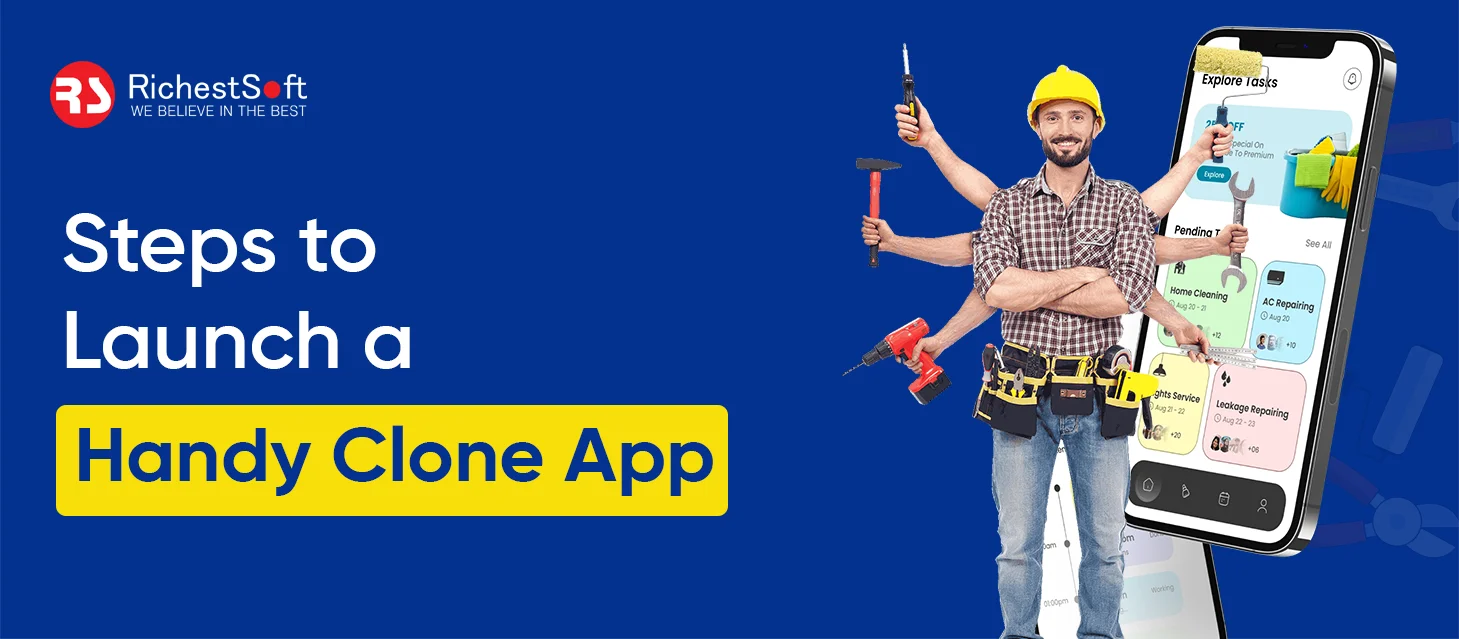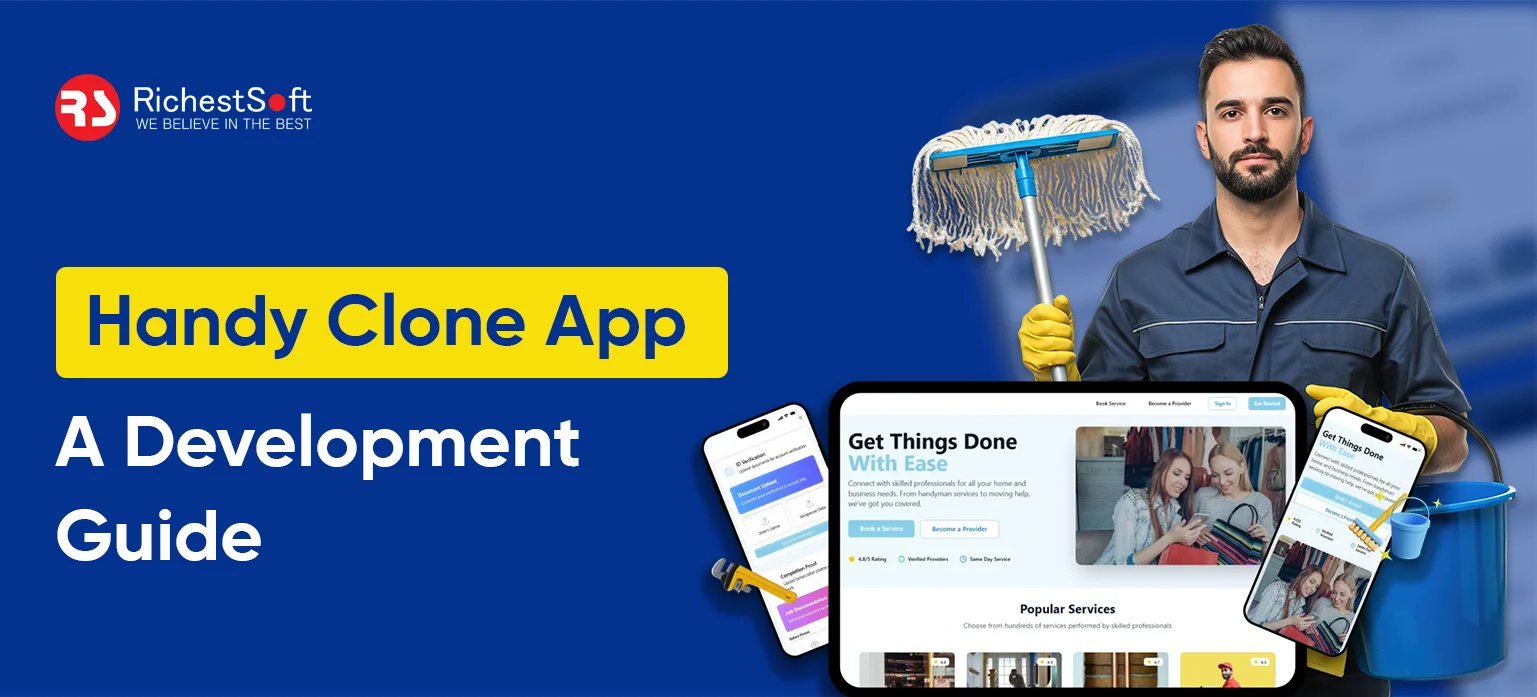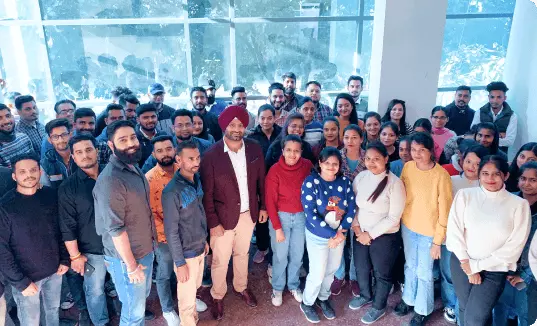October 14, 2025
Organizing home services used to be complicated. Customers spent too much time calling providers, checking schedules, and hoping the work would be done properly. Today, there’s a real demand for home service platforms like Handy that make this process smooth and reliable.
For businesses, that demand is an opportunity. A Handy clone app connects customers with trusted service providers, generates revenue from each booking, and creates a scalable platform for growth. It’s not just about building an app—it’s about understanding customer behavior, supporting providers, and running operations efficiently so the business can stay profitable.
The concept is simple: bridge the gap between customer needs and reliable services. Done right, it can turn into a trusted solution that grows with the market.
Keep reading the blog to know various steps to launch a Handy Clone App.
Steps to Launch a Handy Clone App

Understanding the Market
Honestly, before you even open your code editor, you need to really understand who you’re building this app for. Who’s going to use it? Busy people who don’t have time to hunt down a plumber or cleaner? Renters who just want someone reliable to show up and fix things? And then think about the other side: the service providers. They need steady work, a simple way to see bookings, and payments that make sense. If you ignore either side, your app is going to have problems no matter how “slick” it looks.
Also, figure out which services people actually need most. There might be areas where cleaning and small handyman tasks are in constant demand, while plumbing and electrical work come up less often. Starting with what people actually need will save you a lot of headaches.
Planning Your App
Once you understand the market, ask yourself: what makes your app different? Is it speed? Lower costs? A network of trusted providers? Or maybe you want to focus on one city or even a neighborhood. You need to be clear about this early because it affects almost every other decision—from design to marketing.
Designing
Design isn’t just about making your app look good. People should open the app and book in a few taps. Buttons are obvious, text is readable, and screens are not messy. Trust matters—reviews, ratings, verified badges. The only way to know if it works is to watch real people using it. You’ll see what confuses them, what feels natural, and what needs tweaking.
Features That Actually Matter
Now, about the app itself. It has to help everyone, not just one side. Users should be able to find services, book them, pay, and check past jobs without confusion. Providers need to manage their schedule, see what’s coming up, get feedback, and track payments. And you, the owner, need to know what’s popular, where people drop off, and what’s working.
Honestly, don’t overthink it at first. Technical features like live tracking or chat features can come later. Focus on making the basics work perfectly. If the core service isn’t smooth, nothing else matters.
Picking Technology
So, building an app like this is really about what works and what can grow when more people start using it. React Native or Flutter makes sense because then you don’t need two separate apps, which saves time and effort. On the backend, you just need something that doesn’t crash when people log in, book, or pay. PostgreSQL or MongoDB usually do fine. Maps, payment processing, and hosting that can handle more users later—don’t forget those. They seem small, but they matter a lot once the app is live.
Testing
Try the app yourself. Then watch other people use it. See where they get stuck, where they hesitate. Fix those things. Test it again. Keep doing this. It’s a bit annoying, sure, but if it doesn’t feel natural to real users, nothing else will make it work—not marketing, not ads, not anything.
Launching Your App
Launching an app is more stressful than most people think. You can’t just drop it into an app store and hope for the best. Start small. Pick a neighborhood or a city where you can actually see what’s happening. Are bookings working? Are payments going through without issues? You’ll find out quickly when something doesn’t work like you imagined.
Ongoing Support
Once people start using your app, the real work begins. Bugs appear, features aren’t exactly intuitive, and users do things you never expected. You have to watch carefully—what’s popular, when are people most active, and where do they give up?
Keeping people coming back matters. Maybe a small loyalty program, maybe some perks for repeat bookings. And don’t get too ambitious too fast. Expanding to new cities or services before the app works well in your first area is asking for trouble. Slow, steady, and solid works better than fast and messy.
Making Money
Making money isn’t complicated, but it has to feel natural. A simple way is to take a cut of each booking. You could also offer providers options to pay for better visibility. Some apps create packages for businesses or property managers who need repeated services. Advertising can work too—partner with related companies—but be careful. Users hate spammy ads or interruptions. Make it feel seamless, or you’ll turn people off.
Keeping Data Safe
People place a lot of trust in your app. Personal info, payment details, all of it. You have to handle that seriously. Make sure payments work right, data is safe, and you follow privacy laws. Keep checking for bugs or weak spots. If people don’t feel safe, they won’t use it again, no matter how good the rest of the app is.
Conclusion
Making a Handy clone app isn’t about fancy tech. It’s about making something people can actually use and figuring out how the business will work. The app has to be simple. The service providers have to show up on time and do good work. And the system should handle more users as the business grows.
If you want to build this kind of app, it helps to work with someone who has done it before. RichestSoft has helped all sorts of businesses get their apps running. They focus on making apps that work, stay reliable, and can grow with your business.
 +1 315 210 4488
+1 315 210 4488 +91 99888 06489
+91 99888 06489








